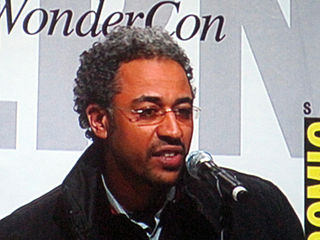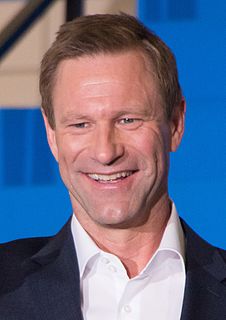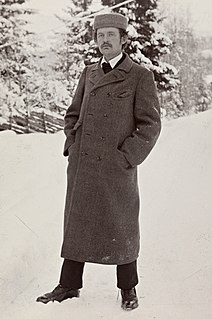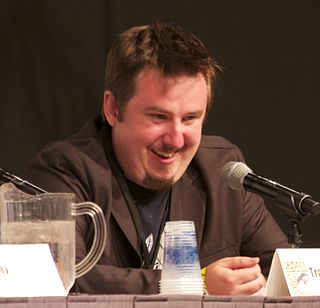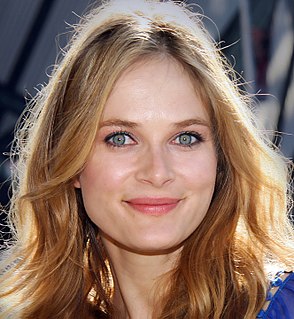A Quote by Sylvain White
I felt there was a certain amount of violence in the graphic and that it could still be cheated on screen so you could still have a hard PG-13 and open up your audience. Anybody can read the graphic novel. If you're 14, you can go out and buy it, and I felt that if you're 14 you should be able to see this movie [The Loosers].
Related Quotes
The graphic novel? I love comics and so, yes. I don't think we talked about that. We weren't influenced necessarily by graphic novels but we certainly, once the screenplay was done, we talked about the idea that you could continue, you could tell back story, you could do things in sort of a graphic novel world just because we kind of like that world.
The book is almost always better than the movie. You could have no better case in point than FROM HELL, Alan Moore's best graphic novel to date, brilliantly illustrated by Eddie Campbell. It's hard to describe just how much better the book is. It's like, "If the movie was an episode of Battlestar Galactica with a guest appearance by the Smurfs and everyone spoke Dutch, the graphic novel is Citizen Kane with added sex scenes and music by your favourite ten bands and everyone in the world you ever hated dies at the end." That's how much better it is.
I've no objection to the term 'graphic novel,' as long as what it is talking about is actually some sort of graphic work that could conceivably be described as a novel. My main objection to the term is that usually it means a collection of six issues of Spider-Man, or something that does not have the structure or any of the qualities of a novel, but is perhaps roughly the same size.
There are people on the ratings board and so froth who don't want certain scenes in the film. There are people who come up and say, "What graphic love scenes. I think, How can a love scene be graphic? Have you seen Total Recall? In this R-rated movie you see a man who you've seen being in love with and sleeping with this fabulous woman shoot her right through the head. "Consider this a divorce" is supposed to be the funniest line in the movie.
Where the Truth Lies rating has a lot more to do with the political climate in America today than it does with the film. It wouldn't have had this rating five years ago. There's nothing graphic in this film on screen; you can look at it, but you won't be able to see it, it's not there. There's nothing graphic sexually that's not about the story telling.
While writing 'Bhavesh,' I pretty much chewed up every single graphic novel I could get my hands on, so all the way from the entire 'Batman' series, Frank Miller's 'Batman,' Ed Brubaker's 'Batman,' Scott Snyder's 'Batman,' all the way through 'Daredevil' to '100 Bullets,' through so many other graphic novels.
